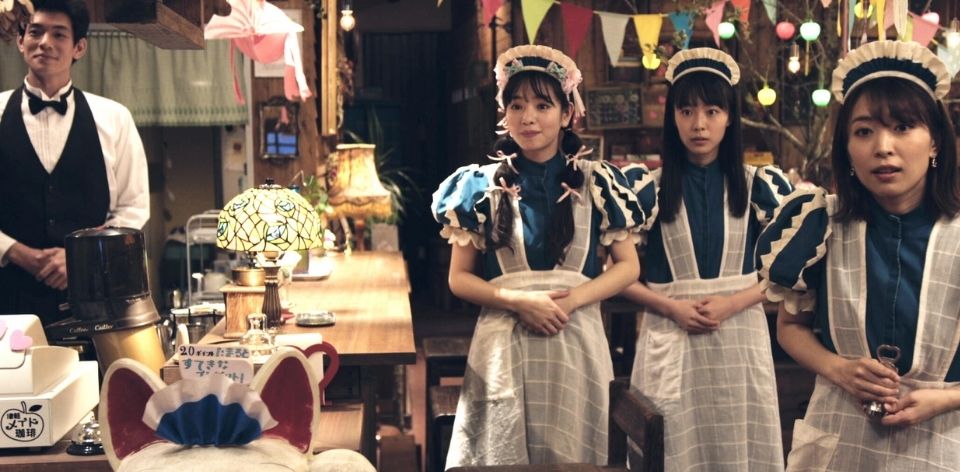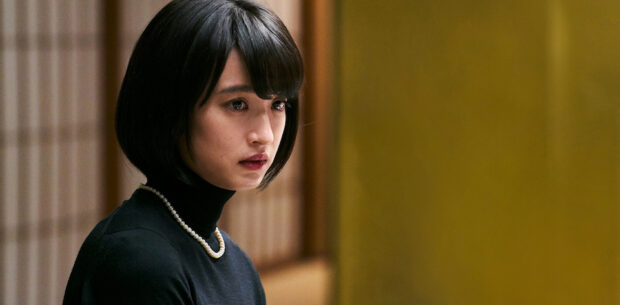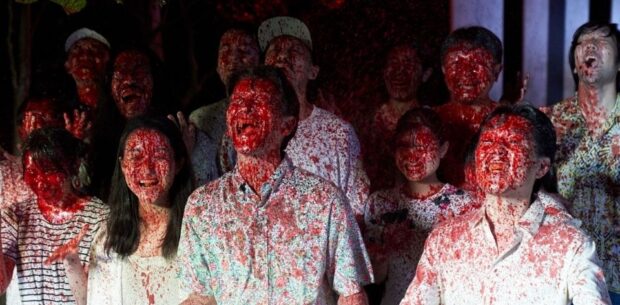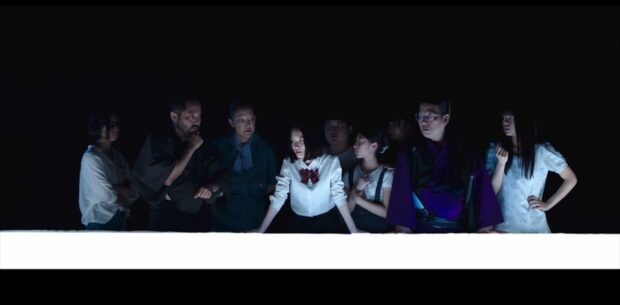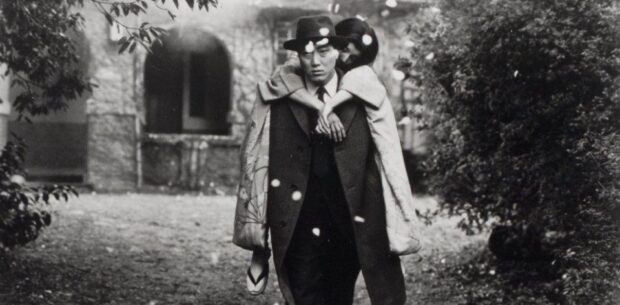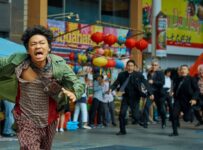One of our favourite film festivals is returning for 2021. The Japan Society has announced that its 15th edition of JAPAN CUTS: Festival of New Japanese Film will go hybrid for the first time. Running from 20 August to 2 September, it will see a mixture of in-person and online screenings
Following their first online festival in 2020, almost 30 feature films and a dozen shorts will play over 14 days of contemporary and classic cuts from Japan’s finest filmmakers.
View the full lineup of our in-person and online screenings below. You can see details on how to get tickets on the Japan Society site. Our past coverage can be seen at our JAPAN CUTS hub.
In-person screenings
JAPAN CUTS 2021 kicks off with ARISTOCRATS (あのこは貴族), one of the films we flagged in our list of best films of 2021 so far after seeing it at IFFR in February. Based on novel by Mariko Yamauchi, Sode Yukiko’s film picks at the edges of the invisible lines in Tokyo.
Soushi Matsumoto’s time travelish movie IT’S A SUMMER FILM (サマーフィルムにのって) will get its US premiere ahead of Fantasia Festival, while Daihachi Yoshida’s KIBA: THE FANGS OF FICTION (騙し絵の牙) will also play on US shores for the first time. (You may recall Yoshida from The Scythian Lamb a few years back).
New York premieres examine Japan’s past, including 19th century epic THE PASS: THE LAST DAYS OF THE SAMURAI (峠 最後のサムライ) from director Takashi Koizumi; TALKING THE PICTURES (カツベン!), Masayuki Suo romantic comedy set in the silent era of filmmaking; and Kiyoshi Kurosawa’s WWII drama-thriller THE WIFE OF A SPY (スパイの妻) starring Yu Aoi.
The Japan Society will also play a repeat screening of Nobuhiko Obayashi’s beautiful final film, LABYRINTH OF CINEMA (海辺の映画館 キネマの玉手箱). Shown online at JAPAN CUTS 2020, this gives New York audiences a chance to see his epic anti-war film on the big screen.
Online screenings
Whatever you do, don’t miss WONDERFUL PARADISE ((脳天パラダイ) from director Yamamoto Masashi. If you like the work of Shunichiro Miki, then you’ll love this. Wonderful and weird go hand-in-hand in this truly bizarre film that just keeps getting stranger – and that’s just one of the things to love about it.
Lim Kah Wai was last seen at the Osaka Film Festival with Somewhen, Somewhere. The Malaysian filmmaker based in Osaka returns with COME AND GO (林家威), a film that has been described as reminiscent of Robert Altman’s Nashville.
Atsushi Funahashi’s COMPANY RETREAT (ある職場) is a timely film about workplace sexual harassment in the #MeToo era. Meanwhile, Satoko Yokohama’s ITO (いとみち) is a coming of age film following a high schooler reconnecting with her matrilineal practice of Tsugaru-shamisen while learning the ropes part-time in a unique maid cafe. Another coming of age film is Sara Ogawa’s THE GOLDFISH: DREAMING OF THE SEA (海辺の金魚), lensed by longtime Hirokazu Kore-eda cinematographer Yutaka Yamazaki.
IT’S A SUMMER FILM and WIFE OF A SPY will also play during the online festival.
Next Generation (Online)
This is genuinely one of the sections of the festival where we find some of our favourite films of the year. 2021 looks to be no exception.
Kosuke Nakahama’s debut B/B leads the pack, following a pop culture-obsessed high school girl with dissociative identity disorder. MARI AND MARI (彼女来来) sounds like a Lynchian nightmare: in Tatsuya Yamanishi’s film, a casting agent’s longtime girlfriend, Mari, suddenly disappears—only to be replaced (without explanation) by a complete stranger bearing the same name.
Other films in the debut section include Kozue Nomoto’s MY SORRY LIFE (愛のくだらない’), Takuya Uchiyama’s SASAKI ON MY MIND (佐々木、イン、マイマイン’), Takeshi Maruyama SPAGHETTI CODE LOVE (スパゲティコード・ラブ) and Elaiza Ikeda’s TOWN WITHOUT SEA (夏、至るころ).
Classics
1980s Japanese cinema doesn’t get enough love at festivals: until now.
New restorations of Masashi Yamamoto’s ROBINSON’S GARDEN (1988) and Kaizo Hayashi TO SLEEP AS TO DREAM (1986) will screen at the festival. The latter’s monochromatic delights were recently named by the BFI as one of the best Japanese films of all time.
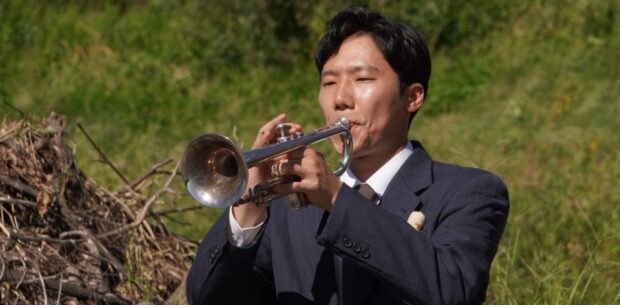
Documentary Focus and Experimental Spotlight
Legendary musician and composer Haruomi Hosono — founding member of Yellow Magic Orchestra — is the focus of Taketoshi Sado NO SMOKING, but politics is the main thread in the documentary section. Thomas Ash explores Japan’s restrictive refugee system in USHIKU, while Arata Oshima examines the dominance of the right wing in splintered parties with WHY YOU CAN’T BE PRIME MINISTER.
Meanwhile, things get experimental with THE BLUE DANUBE (きまじめ楽隊のぼんやり戦争), which premiered at IFFR this year, while Haruka Komori and Natsumi Seo reflect on the tenth anniversary of 3/11 with DOUBLE LAYERED TOWN / MAKING A SONG TO REPLACE OUR POSITIONS (二重のまち/交代地のうたを編む).
Shorts
There’s over a dozen shorts playing across two program this year: Experimental and Narrative Shorts. The Experimental program is always fun, veering in and out of the abstract and document form. Here’s our coverage of last year’s program.
Two of the films we’re most anticipating are LEO’S RETURN and GO SEPPUKU YOURSELVES. The former comes from Anshul Chauhan, who gave us the phenomenal Kontora last year. Plus, if the the title of the latter doesn’t grab your attention, know that it’s the final chapter in Toshiaki Toyoda’s politically urgent Resurrection Trilogy following Wolf’s Calling and The Day of Destruction.

